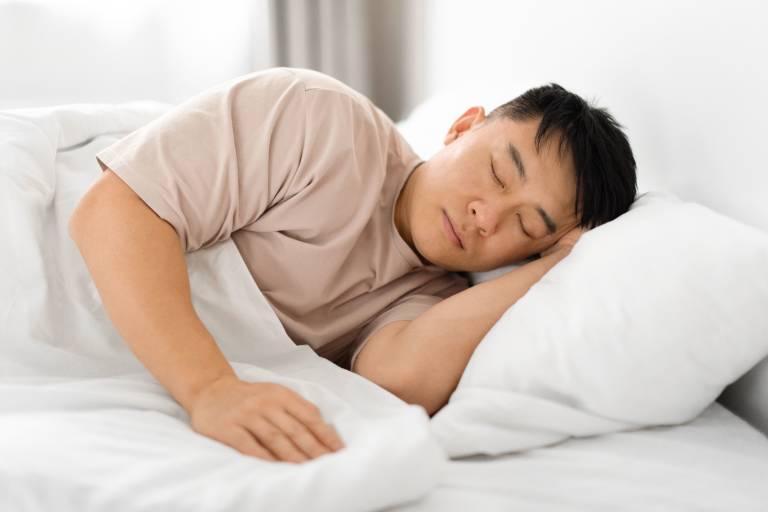Hypertensives: Get a Good Night’s Sleep

High blood pressure is multifactorial: among the factors that influence it are overconsumption of salt, overweight, smoking, age and stress. But did you know that sleep is also a factor? Many studies show how sleep that is too short, of poor quality1 or disrupted by conditions such as sleep apnea2 will contribute to hypertension.
Here are some pointers to help you understand why it is important to get a good night’s sleep, but also how.
What is the relationship between blood pressure and sleep?
It is important to be aware that your blood pressure fluctuates throughout the day depending on the level of effort you make, but also on the emotions or stress you feel. It also varies at night: sleep is a crucial phase as it puts your body to rest. This is very important for all your vital functions and in particular for your cardiovascular system: during the night, your heart rate and blood pressure decrease by 10 to 20% compared to the daytime.3 Therefore, poor-quality sleep adversely affects your cardiovascular health.
How to make sure you sleep better
Epidemiological data shows that our sleeping time is getting shorter and shorter, falling below 7 hours. But optimally, an adult aged 18 to 64 will need 7 to 9 hours of sleep while a child aged 3 to 5 will need 10 to 13 hours.4 In addition, the quality of sleep can be affected by difficulty falling asleep or by waking up at night, which can reduce the beneficial effects of a good night’s sleep.
Modern lifestyles, personal rhythms and worries, staggered schedules… Numerous factors can come into play. However, there are a few simple rules to help you get a good night’s sleep:
- Respect your own sleep rhythm: identify whether you are more of a morning or an evening person, and go to bed when you’re ready. It is also important to be aware of the first signs of fatigue: eyes stinging, yawning, drooping eyelids. Don’t fight it.
- Maintain as regular a sleep schedule as possible, both at bedtime and when you get up.
- Create a conducive environment: quiet, in a well-ventilated room and at a temperature between 18 and 20°C.
- Avoid taxing physical or intellectual activities in the evening.
- Avoid stimulants (tea, coffee, soda, alcohol, cigarettes) and heavy meals in the evening.
- Get into relaxing mode before going to sleep: hot drinks (stimulant-free, such as infusions), reading, relaxation techniques… All these factors help to create good sleeping habits.
- Help is available: first of all, discuss it with your doctor. Next, mobile applications can also help you analyze your sleep patterns by monitoring your sleep cycles, sleeping time and bedtimes, and can give you advice on your sleeping environment, etc.